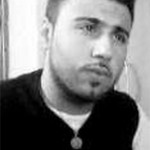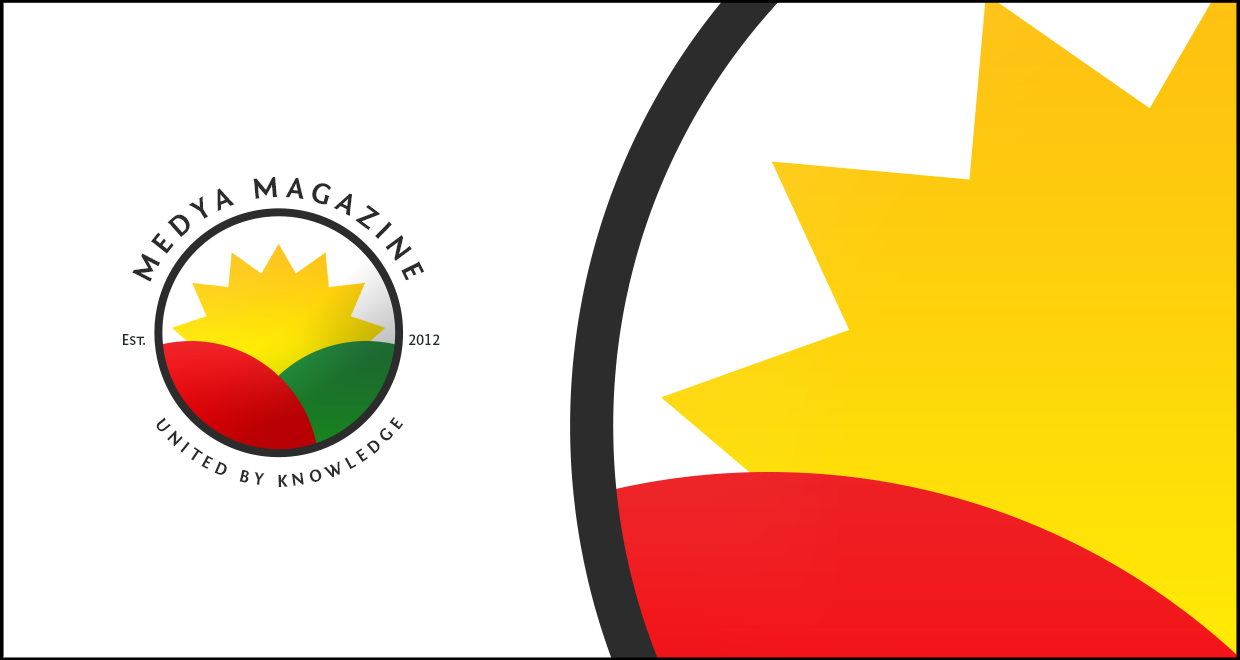As a British born and raised Kurd I have come to realise the greatest struggle, especially for those in the Diaspora, is the one within ourselves. The greatest battle we fight in our quest for freedom is the war inside ourselves about who we are and where we come from. ‘The Kurdish Question’ is a phrase frequently thrown about when talking about Kurdish majorities in different occupied regions, but do we know what the question actually is, let alone the answer? It could have something to do with religion, politics, culture, traditions and so on. But, before we can even ask the question, we – as the Kurdish people – need to educate ourselves on our history.
We need to understand where we came from, the events in history which have led Kurdistan to be where it is now. We need to understand who we are as people, in society and as a nation. Without understanding our background, how can we ask any questions? Or even begin to answer them. As Ireland’s legendary twice president, Garret FitzGerald, once said: “You need to understand your own history and the history of the country you’re dealing with. History often provides the obstacles to a solution, and therefore it has to be understood in the first instance. You must understand the obstacle before you can get rid of it”.
I have been very fortunate to meet the likes of Ciwan Haco and Naser Rezazi, two of the legendary Kurdish artists of our time. Ciwan Haco being from Rojava and Naser Rezazi from Rojhelati Kurdistan, it was interesting to hear their views on this point, especially as they have experienced life and encountered Kurds in Kurdistan and in the diaspora. In both instances of meeting them I have asked the question: “What is wrong with Kurds?” Sounds like a very simple question. Well it is. Besides the fact that I was a very young boy, I was also all too eager to understand the Kurdish people before I started asking subsequent questions. Maybe this was coincidence, or maybe it was fate. Call it whatever you like but both their answers answered the large question mark I had in my head about why it is that Kurds are the way they are. The well-respected Kurdish artists simple reply to my question was: “They just don’t ask your question enough”.
Years later, I had the opportunity to discuss my ideas with an upcoming, leading Kurdish artist; their response was disappointing to say the least. The response I received from this artist compared to that I received from Ciwan and Naser, classic legends of Kurdish music, just goes to prove my point. They made me feel belittled and undermined just by asking them such a question. I must point out that it was interesting to see that this artist was born into a very wealthy family and made sure everyone around them knew who they were. Then I remembered Ciwan and Naser’s stories of their upbringing. They came from impoverished families, had tough childhoods and sacrificed a lot for their people and their long, hard struggle. Those who fail to understand that the history of Kurdistan is not one of gold and glory, fail to understand where they came from, ultimately failing to understand themselves.
A close friend of mine told me the story of Naser Rezazi’s marriage to his late wife, Marzia, which had me in stitches. Tragic comedy one could say, but that is what being Kurdish is all about. Even surrounded by tragedy, we always have a good story to tell. As my English teacher back in school always said, Kurds are great story tellers and with that he had me up in front of the class almost every week, to tell a mythical story from Kurdish history. The obvious stories were the well-known tales like Mem U Zin but, after a while, I was running out of stories. Reluctant and hesitant, I asked my mother to tell me stories passed down to her from my grandmother. My English teacher was so overwhelmed and touched by some of these personal stories, he had me write one in particular for my GCSE English essay and he kept the rough copy. To this day, he still reads my story to his students.
So as I sit here, trying to understand my people, I realise one simple fact. Most people have a ‘class’ problem. The effect it has on Kurdish people is far greater than on many other groups. There is nothing wrong with being wealthy, far from it. There is nothing wrong with being highly educated, again, far from it. However, when people start to allow these factors to define each other, then it becomes an issue in our society. Bank accounts and degrees are used to define the status of a person. Whether a poor Kurd or a wealthy Kurd, highly educated or not, we come from the same rich history, the same traditions and the same beautifully enriched culture. So why is it that we are all taking different routes in our lives, with different priorities in relation to helping the continuous struggle of our people? Shouldn’t we all be united in our ambitions and goals for Kurdistan? Shouldn’t our questions all be the same? Shouldn’t we all be demanding the same thing? Unity, Equality, Freedom and Peace, most of all Peace.
I’m afraid the lack of knowledge of our history deters our paths. Many Kurds have been exiled to Europe. In Germany, Kurds are in the third generation. I have family in Europe and, as much as the youth are proud to be Kurdish, their lack of understanding of that simple concept is astounding. Yes, you’ve guessed it, party slogans is as far as their knowledge goes. My last visit to Germany, earlier this year, was a real eye-opener. The contrast between youth and the older generation is far greater than an initial observation suggests. Starting off with the youth in my family, I asked them all to tell me something about Kurdish history. The responses were few and far between. If it wasn’t a particular party, it would be an old singer. How can this bunch of proud young Kurdish children, answer or help ‘The Kurdish Question’ without knowing the history of it, without understanding their own history and where they come from? This will be the generation to continue the struggle. It is more important than ever not to lose sight of where we came from because we are all too focused on where we are going. My brother once said something that sums up this entire article: “If you don’t know where you come from, you don’t know where you will end up”.
Article also published on Kurdistan Tribune.
[wc_testimonial by=”” url=”” position=”left”] Memed Xeznedar was born in London, UK. Originally from north Kurdistan, his family was forced to leave Dersim/Cewlik during the early 70’s. Memed, was born into a family of poets and musicians but preferred a career in Science. He studied, Physics and has a degree in Electronics Engineering as well as a Masters in Physics. In his free time, Memed enjoys reading about history and culture. Also loves to play football and spend time with family[/wc_testimonial]
Memed Xeznedar was born in London, UK. Originally from north Kurdistan, his family was forced to leave Dersim/Cewlik during the early 70’s. Memed, was born into a family of poets and musicians but preferred a career in Science. He studied, Physics and has a degree in Electronics Engineering as well as a Masters in Physics. In his free time, Memed enjoys reading about history and culture. Also loves to play football and spend time with family[/wc_testimonial]


